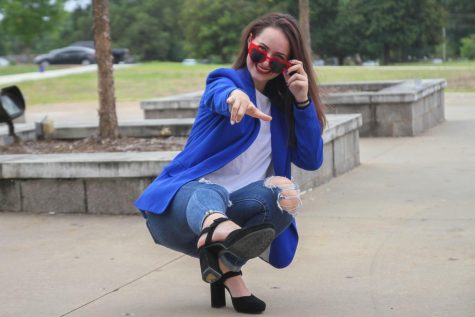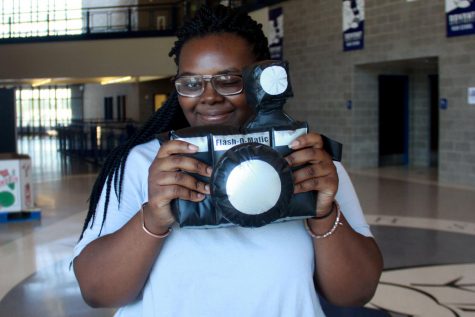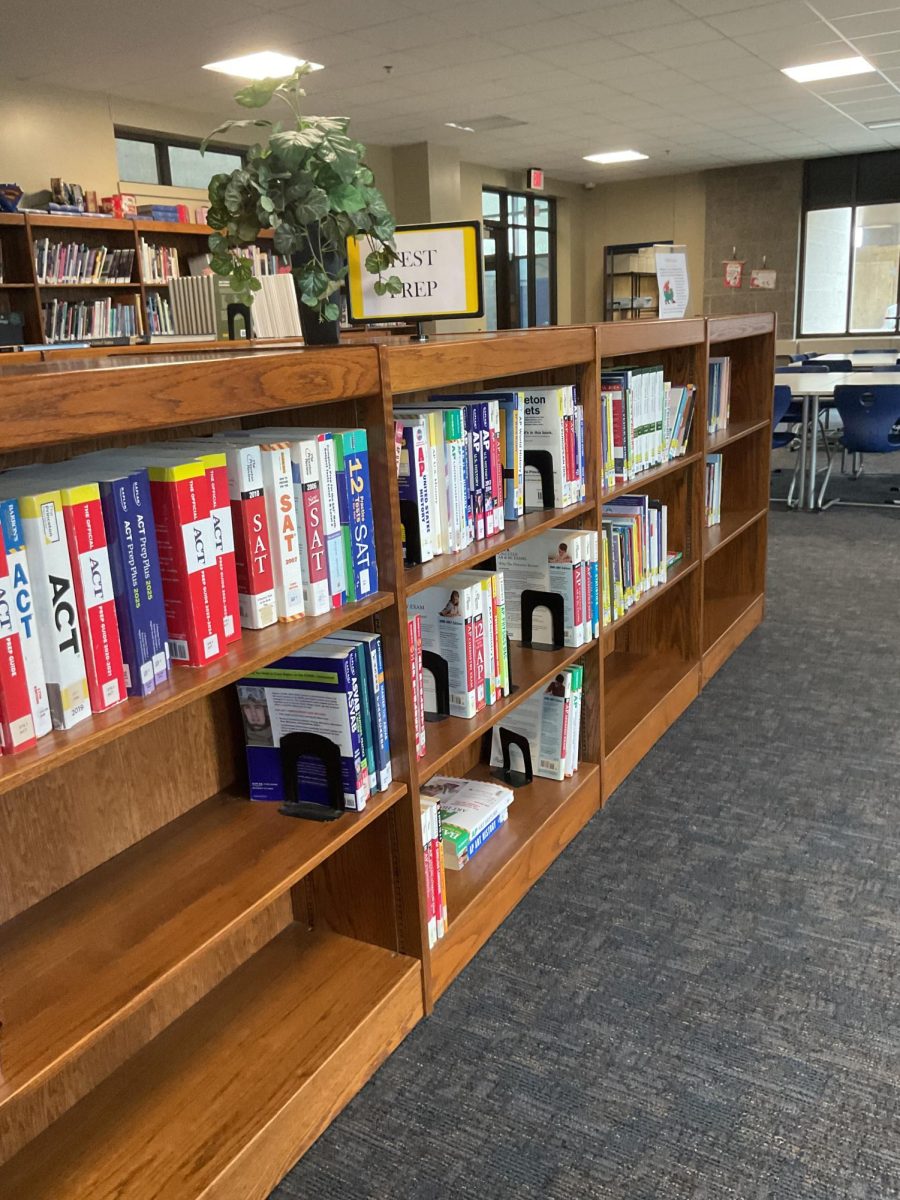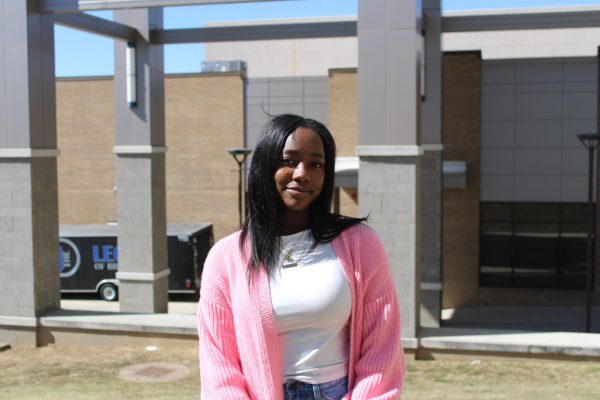Is There Life After Death?
January 4, 2019
Is there life after death? There are so many religious beliefs and opinions on this question that it can be difficult to keep them straight. Even within the school’s walls, there are many opinions and even some stigma toward certain beliefs. Religion can be the basis of someone’s life, but that isn’t always the case.
Senior Jake Coppock was enrolled at St. Theresa’s Catholic School in Little Rock from preschool to fourth grade, but religion was not a deciding factor.
“I was [living] in Little Rock,” Coppock said. “The safest school at the time was a Catholic school.”
While enrolled, Coppock did not partake in the traditions of the Catholic church, because he was not baptized into the Catholic church.
“I was technically a Christian in a Catholic school,” Coppock said. “Everybody ate the bread; I didn’t eat the bread because I wasn’t Catholic. I wasn’t there to get the bread.”
Not being raised in a religious home and Catholicism not affecting his views, Coppock is now a believer in reincarnation.
“I feel like no matter how many souls there are, there’s always more to regenerate,” Coppock said. “It could be like a bank, so to speak. You die, and your soul goes to a bank and charges up until it’s ready to go back again.”
Coppock’s belief in reincarnation stemmed from both his schooling and from many things he learned on his own.
“I saw somewhere, about someone having a family member die, but then still feeling their presence in an animal or in another person,” Coppock said. “I thought about it and [realized] some of the Catholic things I learned are in that.”
This coming February will mark the fourth year of Coppock’s mother’s death. She passed away Feb. 19 of 2015 because of a stroke.
“Sometimes, when I’m feeling really sad, I’ll feel a hand,” Coppock said. “[And] I’ll feel warmth and comfort, and I just know it’s my mom.”
While some were brought up into religious lifestyles, sophomore McKenna Robertson was not.
“Both of my parents were forced to believe [a certain religion] when they were younger,” Robertson said. “And their heart wasn’t in it. They decided [that] when they raised their kids, they would just let them choose.”
Robertson now identifies as Agnostic. Agnosticism is a philosophical belief that God or a higher power is unknown or unknowable.
“I don’t disbelieve in a higher power, because I simply don’t know,” Robertson said. “I think that it is typical of humans to want and believe that there is not an end [to life].”
Religions often focus on creating a system that makes the world a better place, which does not resonate with Robertson.
“[Religion] isn’t for me,” Robertson said. “I’m okay with the world around me, and I don’t really find it in myself to depend on a higher power.”
Robertson has looked at different religions and found similarities in most of them.
“It’s all the same concept,” Robertson said. “We explain the unexplainable. It’s human nature, [and] people depend on their religion and faith to do things right.”
While Robertson identifies as Agnostic, she is open to change.
“If I had evidence, I would take it,” Robertson said. “I’m very solid in what I believe, but I’m open to the fact that there probably is something [else]. There’s another force out there, but I don’t feel it’s my place to say what it is.”
While home life can be a factor for religious opinions, it is not always the case. Sophomore Jordan Alvarado was raised in a Christian home but identifies as an atheist. Alvarado’s father is Catholic and her mother is a Southern Baptist.
“The day before Christmas [last year],I finally told my mom [that I was an atheist],” Alvarado said.
Alvarado’s mom accepted her beliefs.
“She was like, ‘You know what, I’m going to accept you no matter what you are,’” Alvarado said. “But sometimes, she’ll push me to listen to Christian music, or sometimes she’ll make me go to church. I don’t mind, I cooperate.”
Alvarado is unsure about life after death.
“I haven’t really thought about it,” Alvarado said. “And I wouldn’t know. Sometimes I believe that there’s a second life, [but] I wouldn’t say heaven or hell, just a separate life.”
Junior Jared Watson is training to be a Christian youth pastor. Watson grew up in an Assembly of God church.
“I didn’t fully believe what I believed [when I was younger],” Watson said. “And at a time, I fell away from God.”
Not long after that, Watson says he had an encounter with God at a church camp.
“I felt a power, and I could feel the Holy Spirit working in me,” Watson said. “I began to speak in tongues and I had a new feeling of purpose. I felt God calling me to be a youth pastor.”
Watson’s take on life after death comes from the Bible.
“I believe that after we die, we either spend eternity in heaven or eternity in hell,” Watson said. “If our hearts are right with God when we die, I believe that [our] name will be in the Lamb’s Book of Life, [and we] will spend eternity in heaven. I know it probably sounds simple, but that’s as simple as it gets.”
Watson tries to keep an open mind in his interactions with others.
“I just do my best to be an example of Christ,” Watson said. “I don’t force my beliefs on [non-Christians]. Christ didn’t force himself on anyone. [When] approaching someone who doesn’t believe, I treat them as a friend. Pushing a belief onto someone does nothing but push them away.”
Watson is also tolerant of other religions.
“I’m totally biased towards Christianity,” Watson said. “However, just because I’m biased doesn’t mean I treat people who practice [other] religions with indignity and disrespect. I can have bias but not be offensive.”
Watson is set on spreading the love that he has felt from his religion.
“I believe God called us to treat everyone as we would like to be treated and to show love and compassion regardless of what [people] believe,” Watson said.






